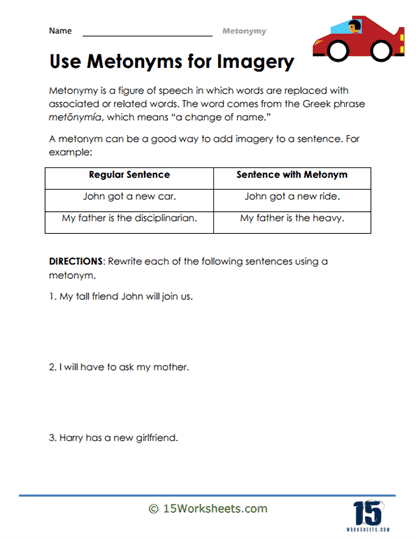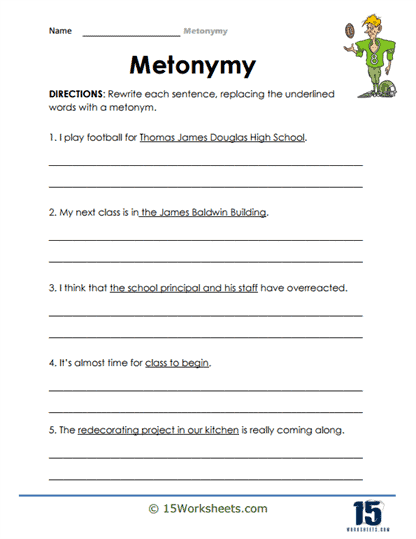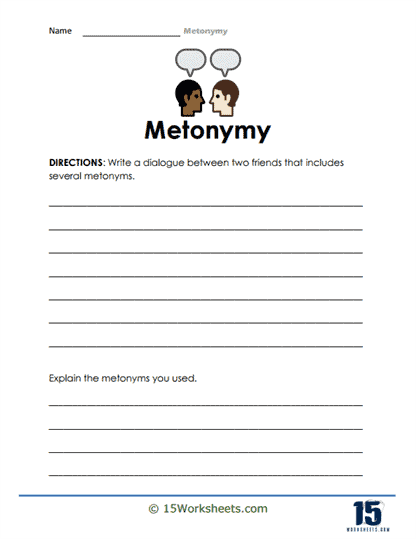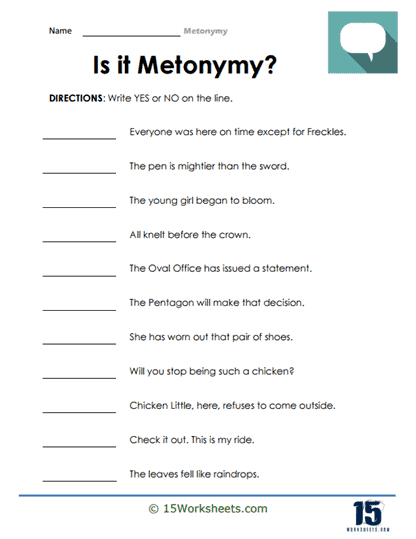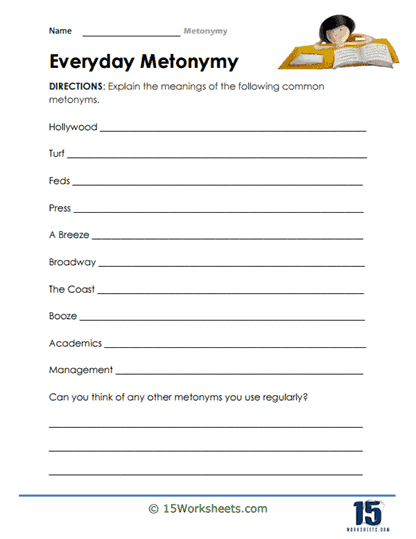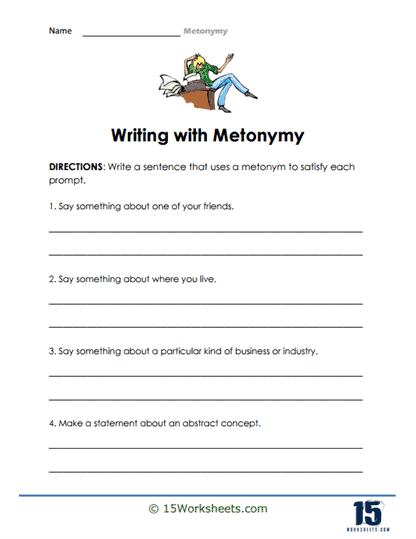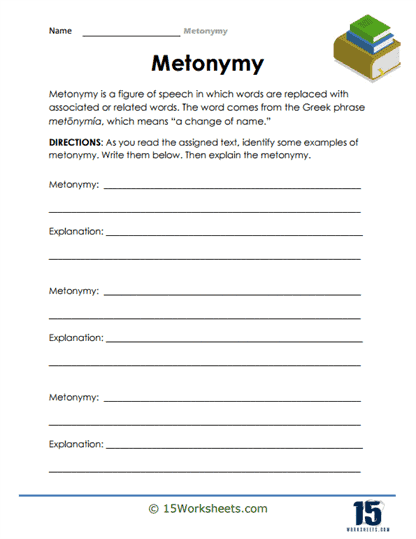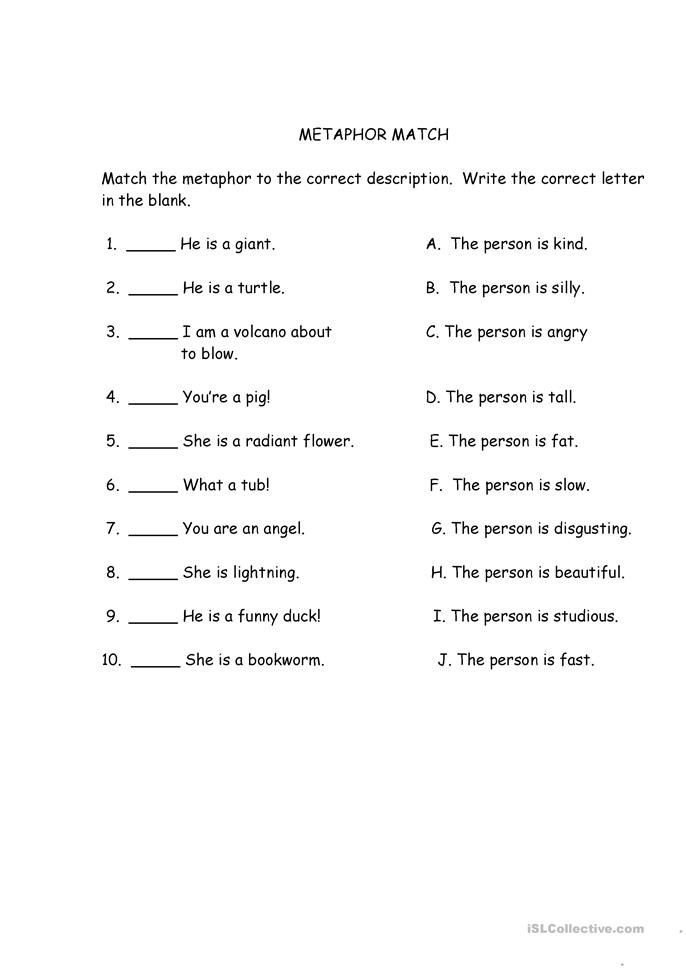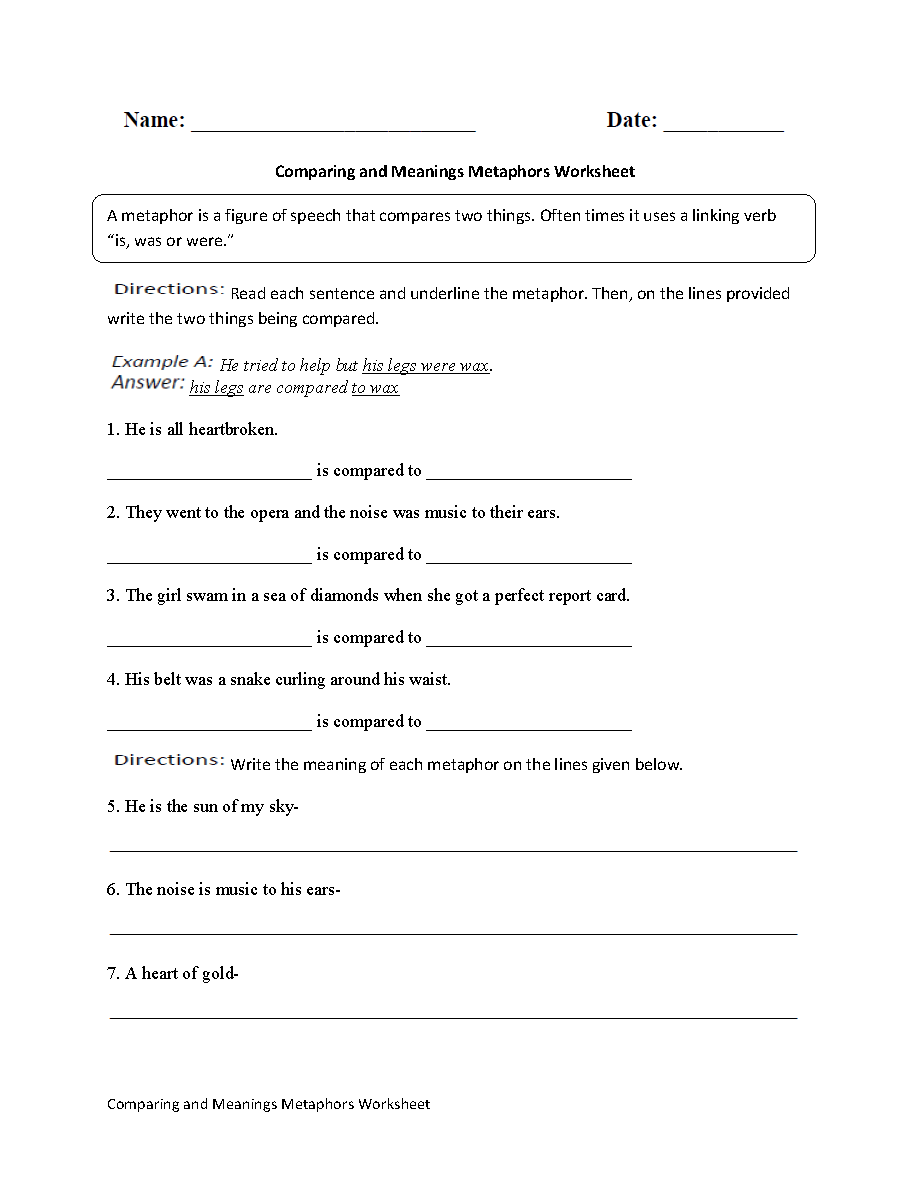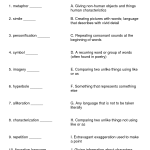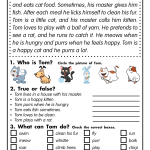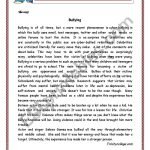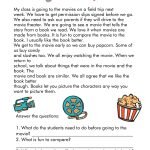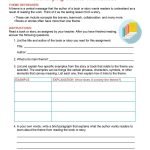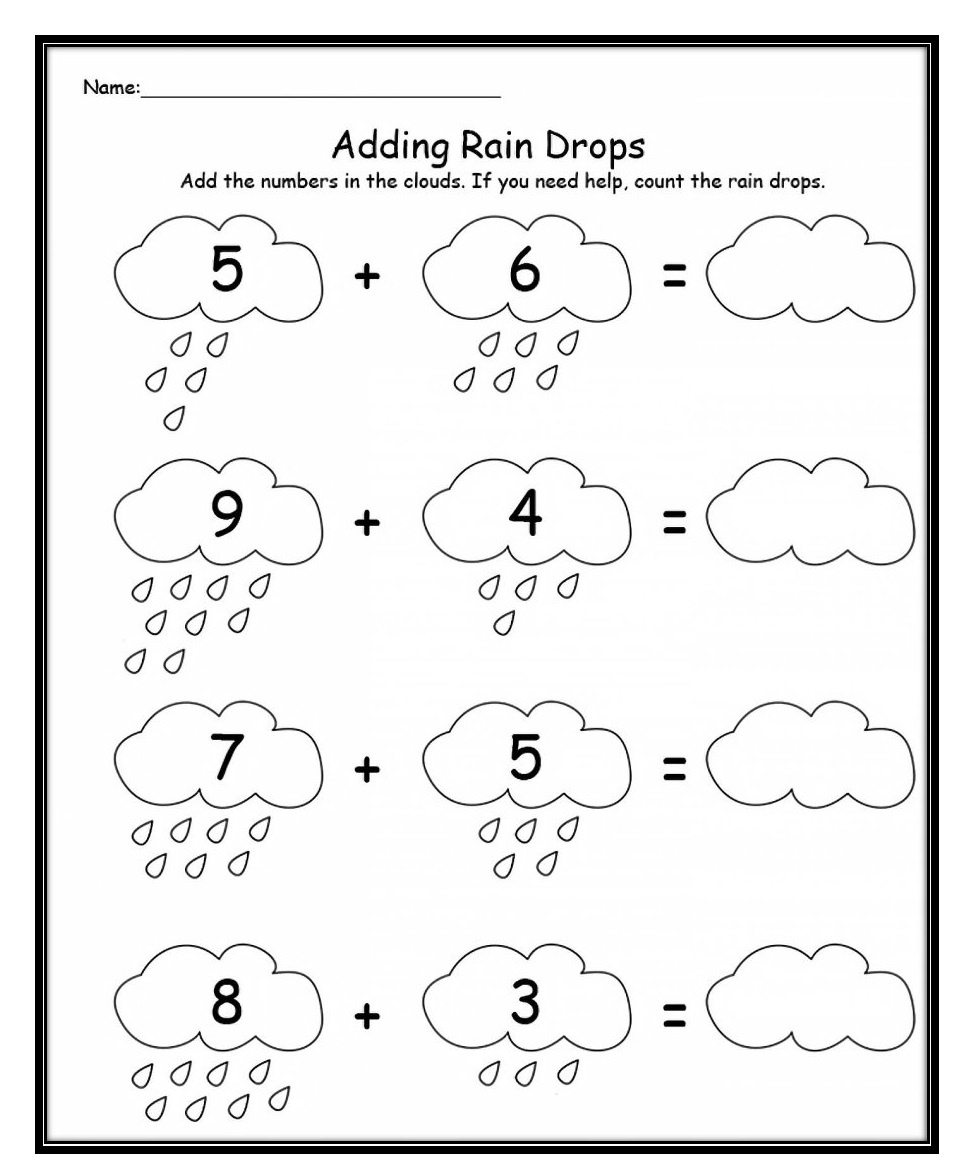Metonymy worksheets are educational tools designed to help students understand and practice the concept of metonymy in language and literature. Metonymy is a figure of speech in which one word or phrase is substituted for another that it is closely associated with or represents. These worksheets provide exercises and activities that engage students in identifying and using metonymy in various contexts.
Table of Contents
Why are Metonymy Worksheets Important?
Metonymy is a fundamental literary device that adds depth and richness to language. Understanding and using metonymy can enhance students’ reading comprehension, writing skills, and overall communication abilities. Metonymy worksheets offer a structured approach to learning and practicing this concept, helping students develop a strong grasp of its application in different forms of literature and everyday language.
Types of Metonymy Worksheets
Metonymy worksheets are available in various formats and cover different aspects of the concept. Some common types of metonymy worksheets include:
1. Identification Exercises
These worksheets present sentences or passages containing examples of metonymy, and students are required to identify the specific metonymic expressions used. This helps students recognize metonymy in different contexts and familiarize themselves with its various forms.
2. Fill-in-the-Blank Activities
In these worksheets, students are provided with sentences where metonymic expressions are missing. They need to fill in the blanks with appropriate metonymic substitutes. This exercise encourages students to think creatively and apply the concept of metonymy effectively.
3. Creating Metonymic Expressions
These worksheets challenge students to generate their own metonymic expressions based on given scenarios or prompts. By doing so, students develop their linguistic creativity and deepen their understanding of the relationship between words and their associated meanings.
4. Metonymy in Literature
These worksheets focus on analyzing and interpreting metonymy in literary texts. Students are provided with excerpts from poems, stories, or speeches, and they have to identify the metonymic expressions used and explain their significance within the context of the text. This helps students appreciate the literary value of metonymy and its impact on the overall meaning of a piece of writing.
Benefits of Using Metonymy Worksheets
Using metonymy worksheets offers several advantages for both teachers and students:
1. Enhanced Language Skills
Working with metonymy worksheets helps students improve their vocabulary, language comprehension, and communication skills. They learn to choose words strategically and understand the nuances of meaning associated with different metonymic expressions.
2. Critical Thinking Development
Metonymy worksheets require students to think critically and analytically. They need to identify patterns, make connections, and interpret the intended meanings behind metonymic expressions. This fosters their cognitive abilities and helps them become more effective readers and writers.
3. Creative Expression
Creating metonymic expressions in worksheets encourages students to think outside the box and express themselves creatively. They learn to use language in innovative ways and develop a deeper appreciation for the power of words.
4. Increased Literary Appreciation
Engaging with metonymy in literature through worksheets helps students appreciate the artistry and craftsmanship of renowned authors. They gain a deeper understanding of how metonymy contributes to the beauty and impact of literary works, fostering a lifelong love for literature.
Metonymy worksheets are valuable resources for educators and learners alike. By incorporating these worksheets into language and literature lessons, teachers can facilitate a comprehensive understanding of metonymy and its significance. Students, in turn, can enhance their language skills, critical thinking abilities, and appreciation for literature through engaging with metonymy worksheets.
Metonymy Worksheets
Metaphor Match
